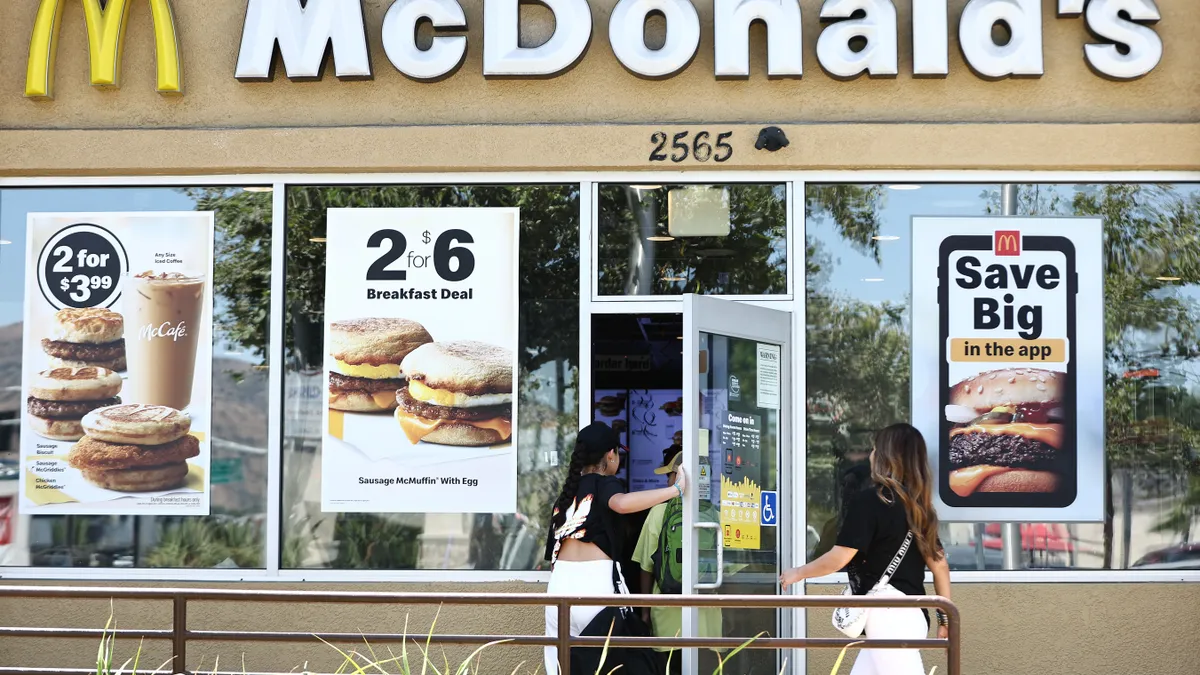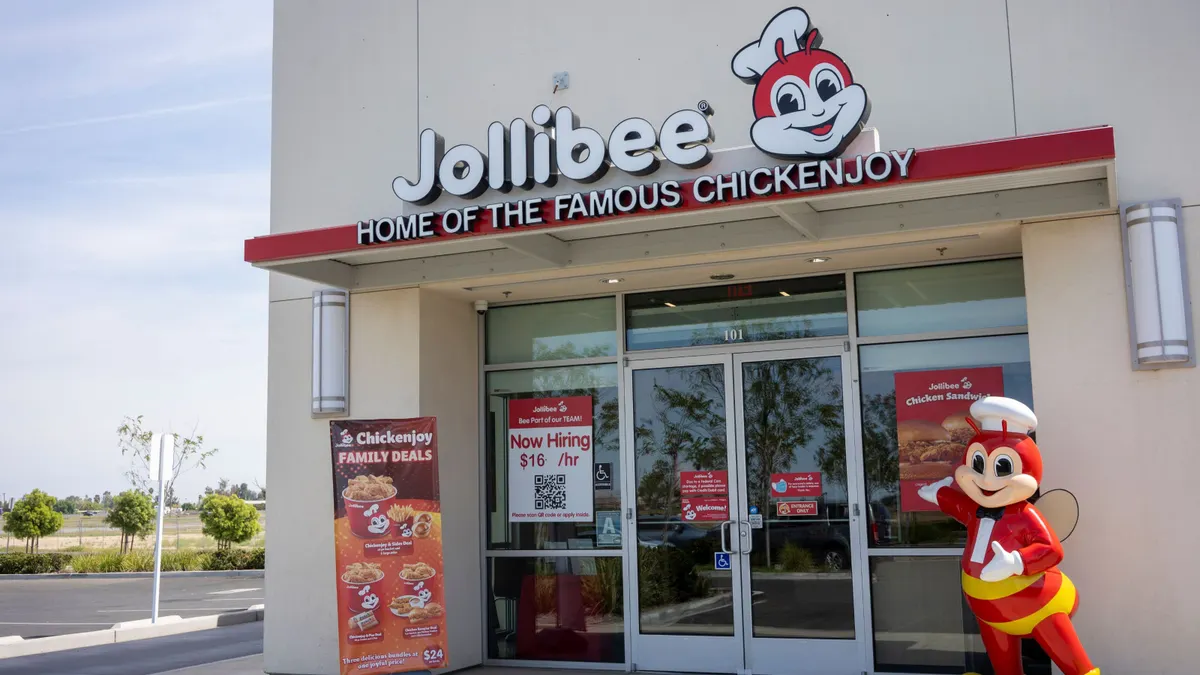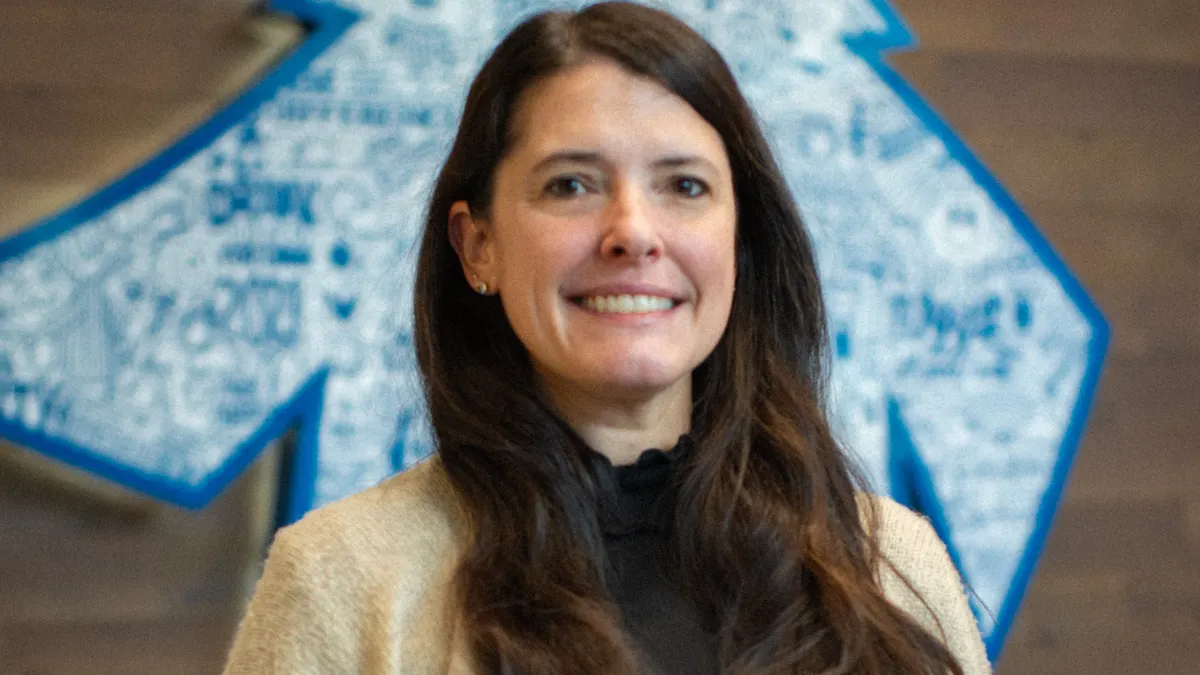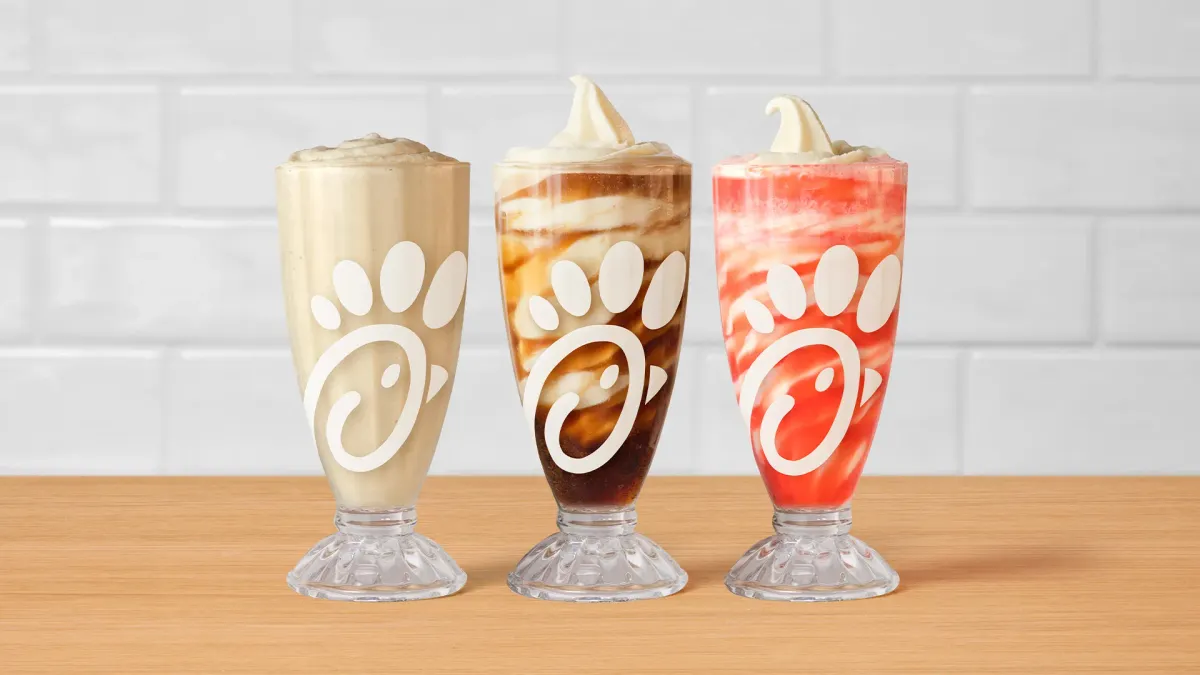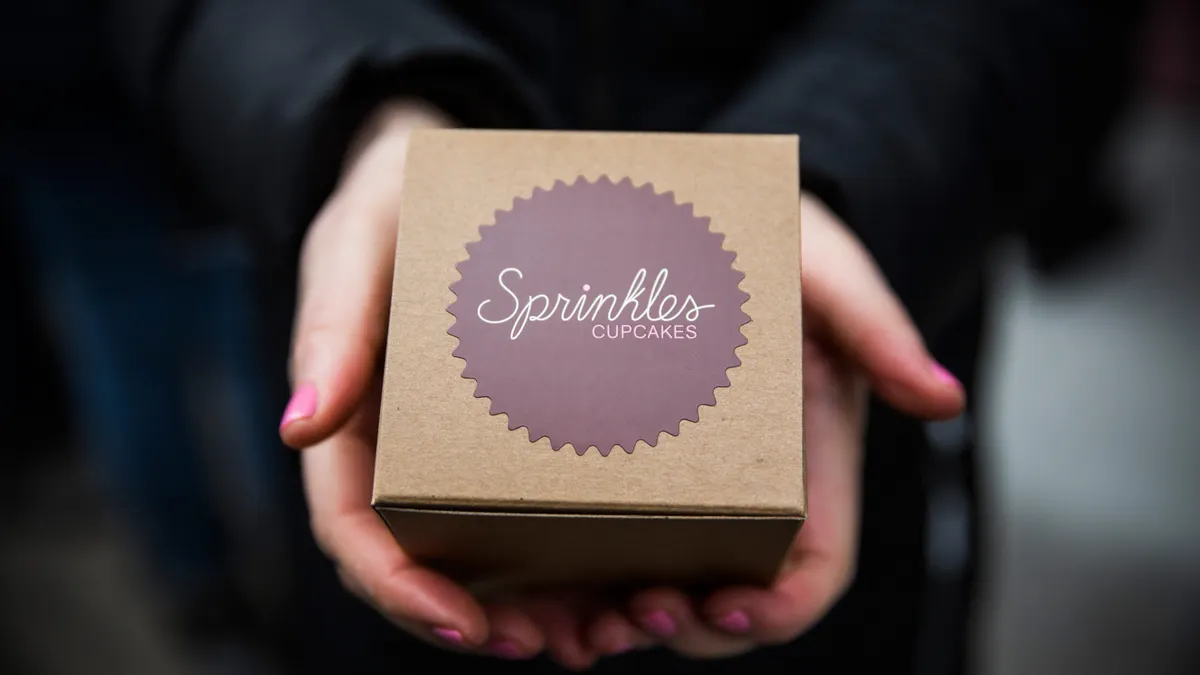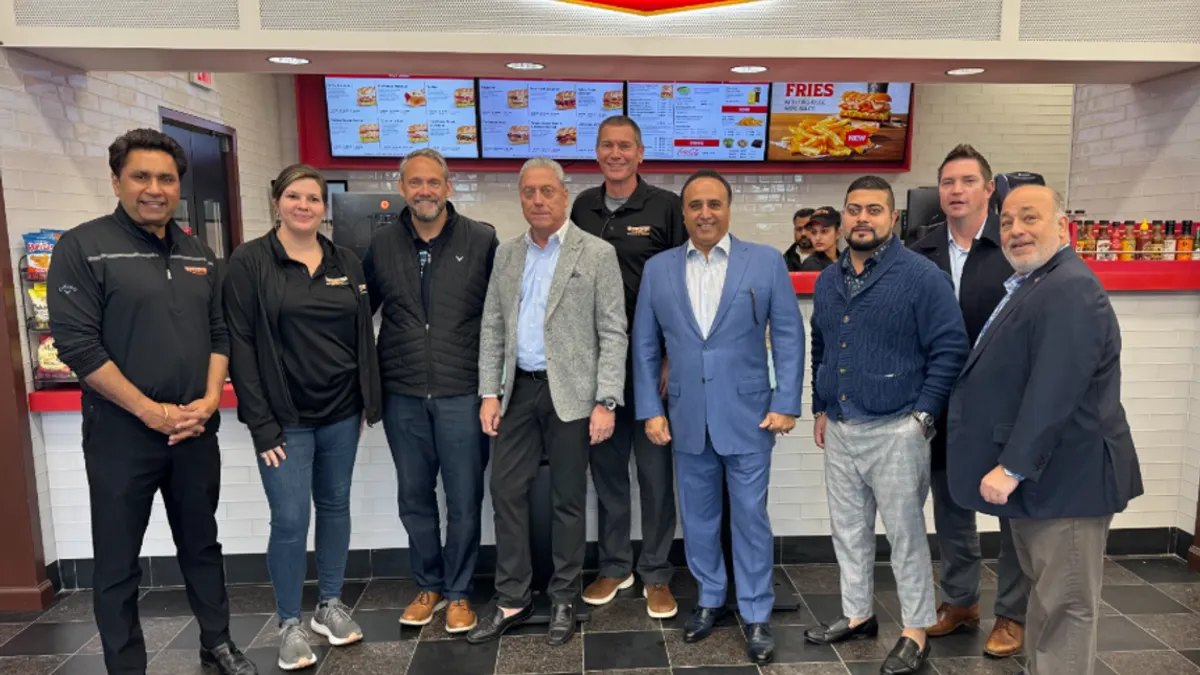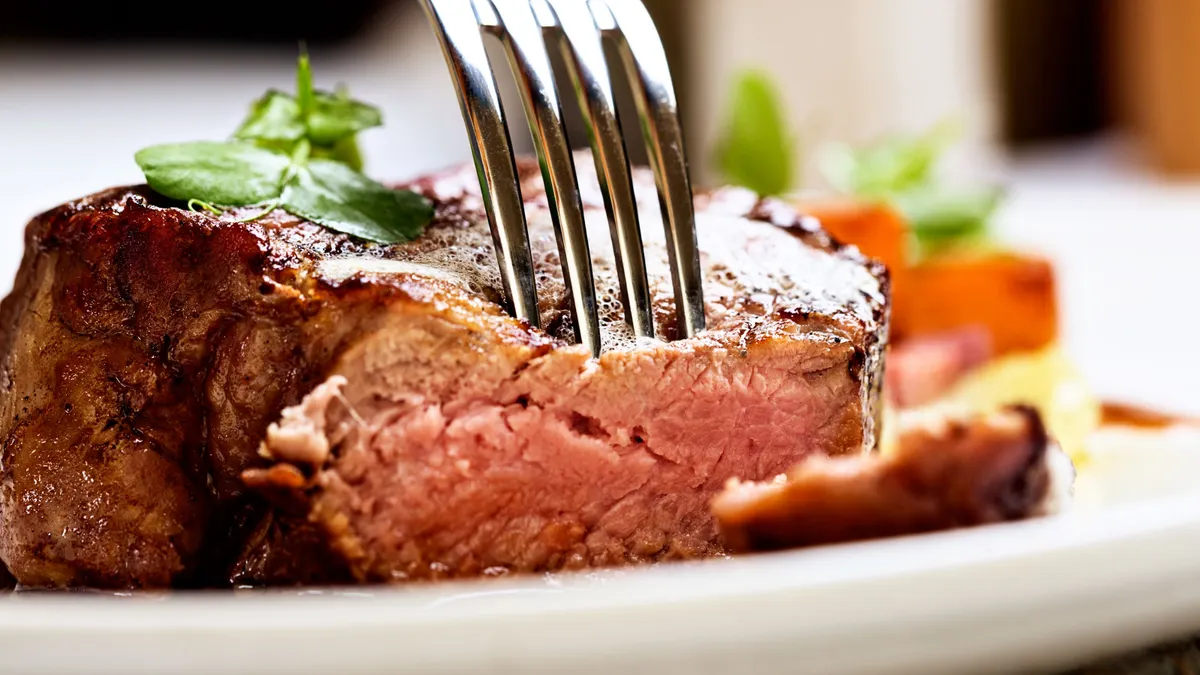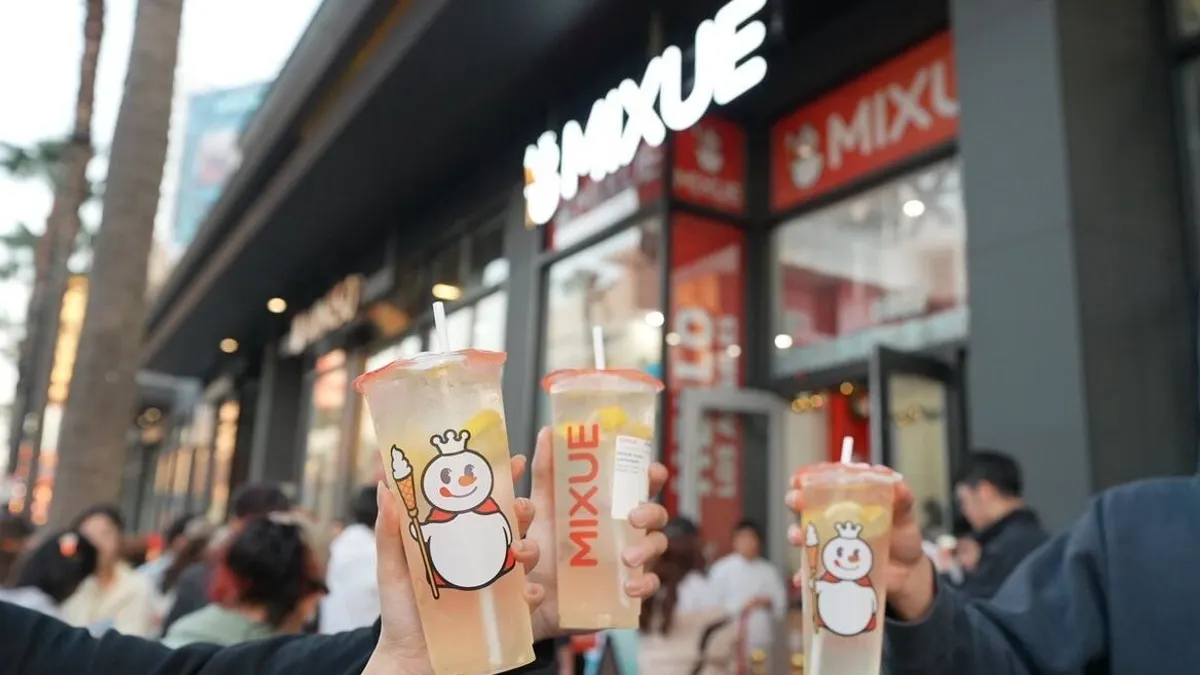Quick-service restaurant patrons are fed up with inflated prices, and it shows: Many QSRs reported sales slumps during recent earnings calls. The impact has been felt through the supply chain, and packaging suppliers are now hoping new QSR promotions will boost volumes in the coming quarters.
McDonald’s charted a 1% year-over-year sales decrease — its first dip in four years. Many analysts flagged that July 29 data point as a harbinger for the QSR sector’s quarterly health. “The QSR sector has meaningfully slowed in the majority of our markets, and industry traffic has declined,” said McDonald’s CEO Chris Kempczinski, who referenced the fast-food giant’s inflation-related price increases in recent years.
Executives at Graphic Packaging International called out an impact from McDonald’s sales during their July 30 earnings call, while noting a dip in overall food service packaging sales.
“Food service, after nine consecutive quarters of 5%-plus year-over-year growth, we did see very much a slowdown,” said GPI CEO Mike Doss.
Other QSRs described similar consumer-driven financial misses. Both Firehouse Subs and Burger King’s sales fell 0.1% in Q2, according to executives on parent company Restaurant Brands International’s earnings call Thursday morning. Yum! Brands, the parent company of KFC, Pizza Hut and Taco Bell, reported a worldwide 1% year-over-year decline in sales during its earnings call Tuesday; Pizza Hut and KFC’s sales declined 3%.
Wendy’s fell short of Wall Street’s expectations, and executives on an Aug. 1 earnings call cited consumers’ desire for value. Separately, Starbucks weighed in on July 30, showing a 3% year-over-year sales decline.
Some packaging companies have previously touted their partnerships with QSRs, including Berry Global’s with Taco Bell, Wendy’s and Burger King; Graphic Packaging’s with Chick-fil-A; DS Smith and WestRock’s with Pizza Hut; and WestRock’s with Domino’s.
So far, major packaging companies largely have avoided mentioning specific QSR customers by name — except McDonald’s — during their recent earnings calls. They typically referred to QSRs or food service customers generically while noting the sector’s rocky quarter and fallout along the supply chain.
For instance, Berry Global executives said on their Aug. 2 call that inflation drove Q2’s weaker food service volumes compared with the same quarter last year. They didn’t name which food service customers took a hit or whether the lower demand specifically pertained to quick-service restaurants.
QSRs described how they’re trying to offer better value to lure back cost-weary consumers. Starbucks CEO Laxman Narasimhan said one of the tiers in the coffee giant’s three-point turnaround plan involves work to “demonstrate the value we offer.”
QSRs that introduced value meals over the past few months include Carl’s Jr., Burger King, Sonic, Del Taco, Jack in the Box and Taco Bell. McDonald’s realized consumers’ discontent and announced it would extend its value meal past the initial four-week period, which began June 25. And on Monday, just four days after its earnings call, Wendy’s launched a $1 Frosty promotion for the rest of summer.
Many QSR executives made value propositions to draw back customers a key talking point during their quarterly calls. “Ensuring we provide consumers affordable options has been an area of greater focus for us since last year, with all of our brands having offered disruptive deals and introduced, or reintroduced, the track of everyday value,” said Yum! Brands CEO David Gibbs. Joe Erlinger, president of McDonald’s USA, said, “While we always work hard to provide value to our customers, they're telling us that they want to see and experience even more value.”
Some packaging companies have noticed the uptick in customers introducing deals in recent months. GPI’s Doss said “value promotions are gaining traction at QSRs, and we are beginning to see that in our order books.” Namely, he cited expectations for McDonald’s value meal extension to affect GPI’s results.
“I don't think there's any secret that the QSR segment is clearly reacting, and has started reacting at the end of Q2, to menu pricing and trying to do things to promote,” said Pactiv Evergreen CEO Mike King, pointing to more than three years of elevated inflation that has left consumers “pretty beat up.” Early in Q3, Pactiv is “starting to see that flattening, to trending of those volumes come back,” he said, cautioning that the company is a “bit less optimistic of an inflection there, just given the speed at which this is changing. ... We're kind of seeing a slight improvement or flattening of that, but not what we'd call an inflection.”
Pactiv Evergreen executives expressed some surprise with how quickly its QSR customers had jumped into action to offer promotions. They and other companies’ executives underscored the importance of packaging companies remaining agile and capable of responding as soon as customers decide to launch deals.
“Where we really differentiate and help drive success in these promotions is ... the ability to service customers with rapidly changing demand requirements in a very consistent way,” said Berry Global CEO Kevin Kwilinski. “They rely on us to be able to move with them when they start to promote, and they want to go quickly.”
Although the QSR downward sales trend largely became evident in Q1 and Q2, effects at restaurants and for packaging partners are anticipated to last through the current and coming quarters. McDonald’s Erlinger alluded to continued attention to consumer price concerns for “at least the next several quarters.”
“I think where we're at now is the consumer's kind of run out of places to go get calories at a lower cost, and what we see is the reaction by our different categories and our different customers to that,” said Pactiv Evergreen’s King. “We need the consumer to feel better about things.”



